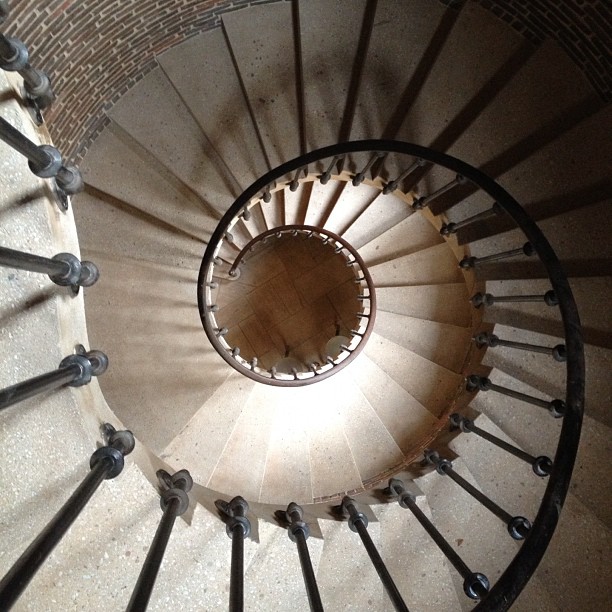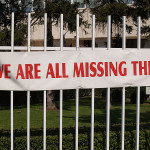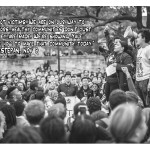by Sohum Pal (Contributing Writer)
I’m a freshman, so the thick and thin envelopes that have become so iconic in the college admissions mythos are still familiar to me. I remember, too, the incredible power I felt then—power derived from having just come to terms with being disabled. I recognized my cerebral palsy as a key determinant of my life to a greater degree than before. Contrary to so much of the rhetoric that surrounds disabled people, both in the United States and abroad, however, that cerebral palsy had so profoundly affected my life was not a source of weakness or shame—rather, I took pride in it, as I found myself linked by my disability to a community of individuals contending with similar conditions.
Contending. The word became a significant one for me. As I developed a consciousness of disability, I developed, too, a personalized set of words that I saw as linked to my cerebral palsy. The word “contenders”, for me, evaded the disempowering connotations of words like “sufferers” and “victims.” As I entered the conscious disabled community, I became enraptured by what I saw as the fierce intelligence, strength, and radicalism of the community. Naïvely, I imagined that I might find a community of just that type at Yale.
After all, those thick envelopes I mentioned earlier almost universally made mention of the “strength [I had] shown in dealing with [my] disability.” Perhaps this should have been my first indicator. To admissions committees around the nation: I am no stronger or weaker–it is no great tragedy and I am not pitiable. I am strong because it is who I am, not because I have “dealt” with a disability. “Dealing” with disability implies that being disabled is a condition that can be and should be resolved. It is not. It is an identity, with a community like any other. Optimistically, I thought that diversity meant not only ethnic, sexual, and gender diversity, but a diversity of bodies and minds with varied ability statuses. This was not the case. Perhaps I should have foreseen that: even within circles focused on fighting oppression, such as queer, anti-racist, or so-called-intersectional feminist circles, ableist slurs are flung about recklessly. The “direct actions” these groups conduct frequently pose challenges to disabled activists (whether that disability be a mental health condition, mobility, vision or hearing impairment, or any other condition). The result is that disabled communities are frequently alienated from the activists and activism that they desire–if they are not excluded entirely.
When I arrived at Yale, it was abundantly clear that this was no place for the mobility impaired. Accessibility ramps are few and far between—when they are present, they frequently pose tremendous obstacles to punctuality. I have my doubts about the accessibility of Yale for other forms of disability. Many upperclassmen have told me that mental health services, especially for people of color, are notoriously poor. There are no audio cues at the crosswalks, endangering our vision-impaired peers. Above all, the culture that pervades Yale—and institutions like Yale—is that these institutions are for those of fully able body and mind. Being of limited mobility or having mental health conditions or basically any other form of disability violates the mold that Yale asks us to fit into. It denotes, in the common rhetoric surrounding disability, impaired function. Yale does not tolerate that—and in response, it has developed conditions of open hostility to students with mobility, visual, or auditory impairments, mental health conditions, and a host of other disabilities.
It is not only an institutional attitude. It exists on an individual level as well—students, faculty, and administrators throw ableist slurs around. They have openly questioned my ability status, ensuring that I’m “not faking.” They feel free to do so because they do not perceive any diversity of ability statuses, because ableism is among the least invisible and most entrenched forms of oppression.
I am extraordinarily privileged: I have the ability to walk unassisted, albeit with some pain. In effect, I am able to pass for able-bodied. Many members of the disabled community are not so privileged. They are frequently seen as deficient in some way, as I am sometimes seen when I proclaim that “I have cerebral palsy.” At the same time, for all my rogue neurons and tight tendons, there is a mind in my skull. It is fully furnished with all faculties of my able-bodied peers. This is true, too, for the thousands of disabled students that do not apply to Yale for the simple reason that Yale cannot—and does not wish to—accommodate them.
It is difficult, as I trudge around Old Campus and watch passerby make eye contact with my brace, to embrace this place. When I see the sweeping staircases, when I call the Disability Resource Office during office hours and am sent straight to voicemail, I am reminded of both the grandeur of this place I have chosen to make my home—and of the brilliant minds that will never pass through these halls because they cannot make it up the steps.



